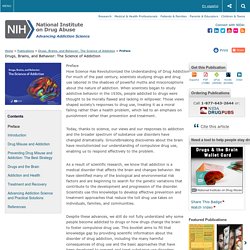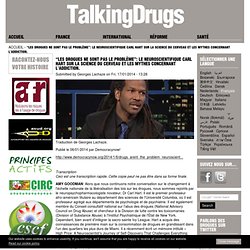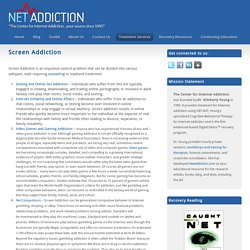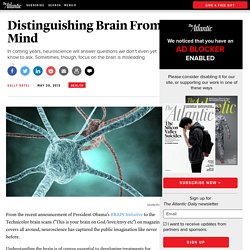

OFDT - Drogue et toxicomanie en France - Indicateurs, études, recherches. Hôpital MARMOTTAN. CERTA - Centre d'addictologie. "Drugs, Brains, and Behavior - The Science of Addiction" Skip to main content En español Home » Publications » Drugs, Brains, and Behavior: The Science of Addiction » Preface Drugs, Brains, and Behavior: The Science of Addiction Preface How Science Has Revolutionized the Understanding of Drug Addiction For much of the past century, scientists studying drugs and drug use labored in the shadows of powerful myths and misconceptions about the nature of addiction.

Today, thanks to science, our views and our responses to addiction and the broader spectrum of substance use disorders have changed dramatically. As a result of scientific research, we know that addiction is a medical disorder that affects the brain and changes behavior. Despite these advances, we still do not fully understand why some people become addicted to drugs or how drugs change the brain to foster compulsive drug use. Nora D. Prev Index Next This page was last updated July 2018 Contents Get this Publication Ordering Publications Call 1-877-643-2644 or: Cite this article press ctrl+c to copy. Alcohol, Drug Addiction and Recovery News. It's not the morphine, it's the size of the cage: Rat Park experiment upturns conventional wisdom about addiction - garry's subposthaven.
“Les drogues ne sont pas le problème”: le neuroscientifique Carl Hart sur la science du cerveau et les mythes concernant l’addiction. Traduction de Georges Lachaze.

Publié le 06/01/2014 par Democracynow! Transcription Ceci est une transcription rapide. Cette copie peut ne pas être dans sa forme finale. AMY GOODMAN: Alors que nous continuons notre conversation sur le changement à l'échelle nationale de la libéralisation des lois sur les drogues, nous sommes rejoints par le neuropsychopharmacologiste novateur, Dr Carl Hart. Il est le premier professeur afro-américain titulaire au département des sciences de l'Université Columbia, où il est professeur agrégé aux départements de psychologie et de psychiatrie. Dr Carl Hart, nous vous souhaitons la bienvenue à Democracy Now! Dr CARL HART: C'était mon choix, « Trouble Man », mais les éditeurs pensait que nous n’étions plus en 1973, nous devons donc opter pour quelque chose de plus moderne. AMY GOODMAN: Les résultats de vos recherches mais aussi votre parcours de vie vont en surprendre beaucoup.
National Institute on Drug Abuse. Rat Park drug experiment cartoon – Stuart McMillen comics. Addiction. Un article de Wikipédia, l'encyclopédie libre.

La dépendance, ou addiction (qui est un anglicisme), est, au sens phénoménologique, une conduite qui repose sur une envie répétée et irrépressible, en dépit de la motivation et des efforts du sujet pour s'y soustraire. Le sujet se livre à son addiction (par exemple : utilisation d'une drogue, ou participation à un jeu d'argent), malgré la conscience aiguë qu'il a — le plus souvent — d'abus et de perte de sa liberté d'action, ou de leur éventualité. L'anglicisme addiction est au sens courant souvent synonyme de toxicomanie[1] et désigne tout attachement nocif à une substance ou à une activité. Le terme d’assuétude, également noté bien que peu utilisé, a un sens similaire sans toutefois être aussi négatif (assuétude au chocolat mais dépendance à la cocaïne).
Category:Addiction. Addiction. Addiction is the continued repetition of a behavior despite adverse consequences,[1] or a neurological impairment leading to such behaviors.[2]

Addiction Journal. F3A Federation des acteurs de l'alcoologie et de l'addictologie : addictions, alcoolisme, alcoolodependance, dependances, drogues, toxicomanie... Evolution has not prepared your brain for today's Internet porn. Screen Addiction Subtypes and Risk Factors. Screen Addiction is an impulsive-control problem that can be divided into various subtypes, each requiring counseling or inpatient treatment: Sexting and Online Sex Addiction – Individuals who suffer from this are typically engaged in viewing, downloading, and trading online pornography or involved in adult fantasy role-play chat rooms, social media, and sexting.Internet Infidelity and Online Affairs – Individuals who suffer from an addiction to chat rooms, social networking, or texting become over-involved in online relationships or may engage in virtual adultery.

Screen addiction results in online friends who quickly become more important to the individual at the expense of real life relationships with family and friends often leading to divorce, separation, or family instability.Video Games and Gaming Addiction – Anyone who has experienced it knows all too well – video game addiction is real. Cyberdépendance tronc commun. Internet addiction disorder. Internet addiction disorder (IAD), now more commonly called problematic Internet use (PIU)[1] or compulsive Internet use (CIU).[2] Other overlapping terms include Internet overuse, problematic computer use or pathological computer use – and even iDisorder.[3] These terms avoid the word addiction and are not limited to any single cause, but only reflect a general statement about excessive computer use that interferes with daily life.[4] IAD was originally proposed as a disorder in a satirical hoax by Ivan Goldberg, M.D., in 1995,[5] though some later researchers have taken his essay seriously.

Other habits such as reading, playing computer games, or watching very large numbers of Internet videos or movies are all troubling only to the extent that these activities interfere with normal life. Internet addiction is a subset of a broader "technology addiction". §A multidimensional construct[edit] §Disputed disorder: DSM[edit] Jerald J. §Controversies in diagnosis[edit] §Net compulsions[edit] Dr. Addiciton_Time.JPG. Category:Behavioral addiction. Distinguishing Brain From Mind - Sally Satel. Juliendn/Flickr From the recent announcement of President Obama's BRAIN Initiative to the Technicolor brain scans ("This is your brain on God/love/envy etc") on magazine covers all around, neuroscience has captured the public imagination like never before.

Understanding the brain is of course essential to developing treatments for devastating illnesses like schizophrenia and Parkinson's. More abstract but no less compelling, the functioning of the brain is intimately tied to our sense of self, our identity, our memories and aspirations. But the excitement to explore the brain has spawned a new fixation that my colleague Scott Lilienfeld and I call neurocentrism -- the view that human behavior can be best explained by looking solely or primarily at the brain.
Sometimes the neural level of explanation is appropriate. Other times, a neural explanation can lead us astray. The logic for this designation, as explained by former director Alan I.